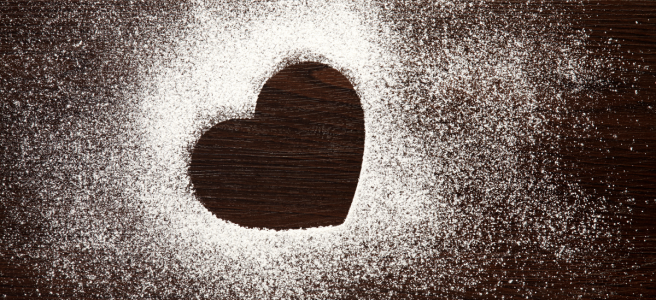“The fundamental problem is that if we have not been appropriately soothed and have not had carers who have sufficiently helped us to manage our feelings, we are likely to have great difficulty managing them as we grow up and in adult life*. We badly need the skills of emotional regulation because otherwise we are at the mercy of our feelings…
Many people, of whom you may be one, self-soothe not with words and compassion but with substances and activities. The compulsive exerciser is making himself feel better by his exertion; the drug addict or problem drinker is using substances to escape from feelings he can’t manage; the person with disordered eating is using her preoccupation with food, weight, shape and size to deal with feelings that she doesn’t know how to manage in any other way.”
Julie Buckroyd, “Understanding Your Eating”
Such is the stigma around fat bodies that people who binge eat aren’t usually considered in the same way as others who struggle with addiction. There’s rarely the same empathy and compassion offered to people with overeating issues as those battling alcohol or drugs.
Instead, assumptions are made that the individual is simply greedy or lacks the intelligence to comprehend what it means to “eat healthily”. They have no will power and should just stop eating so much.
This lack of understanding adds insult to what is already a terrible psychological injury.
As someone who struggled with binge eating for decades, I can tell you the general ignorance and intolerance of this issue only added to my pain and sense of isolation.
The truth is anything mood-altering can be addictive – alcohol, drugs, sex, shopping, exercise, daydreaming.
And food.
It’s hard for people who binge eat to learn to relate to themselves with compassion and empathy when society doesn’t.
And yet that’s exactly what it takes to heal.
Instead of judgment and condemnation, we need acceptance and understanding to navigate this complex psychological issue. Not only from ourselves, but society at large.
After all, we can’t abstain from food as we can alcohol or drugs. We have to learn to make peace with food and find the way to eat that’s right for us.
We also have to learn to accept and appreciate our bodies so we’re compelled to care for them.
And we have to learn to soothe ourselves appropriately and effectively – with words and compassion, not substances.
©️ Julie de Rohan 2020.
🌷🌷🌷
References
Buckroyd, J. (2011), Understanding Your Eating: How to Eat and Not Worry about it. Maidenhead: Open University Press.
*Goleman, D. (1996), Emotional Intelligence. London: Boomsbury.


Great post, Julie – I’m going to make a list of words/phrases to use to soothe myself, or to hand to my kids and tell them to help! 🙂
LikeLiked by 3 people
Thanks, Karen. Good luck with that!
LikeLiked by 2 people
I agree. With words..compassion..grace. However, from what I’ve experienced, most are to weak in their own selfishness to do so. The ones who will read this will understand.It’s reaching the people who don’t.
LikeLiked by 2 people
I hear what you’re saying, Matt. I suppose I’m less concerned with people who simply dump shame on others to alleviate their own sense of shame, and more concerned with people who, perhaps, are simply unaware and have the capacity to understand. Maybe that just gives me hope, I don’t know. I appreciate you sharing your thoughts, thank you.
LikeLiked by 2 people
I love hope.
LikeLiked by 2 people
Likewise.
LikeLike
Just what I needed at this time, Julie. I used to binge eat until the MS closed my throat and prevented swallowing at times. Then I started what I still have problems with — binge shopping! Mentally slapping myself each time I order something I don’t need and in most cases don’t even want is closing the door after the fact. (Or closing the barn door after the cows escape). Sometimes some good comes of it though. I buy things that I hope others will like and give them away, and that slows me down due to limited income. I guess I’m fortunate that booze and pills make me sick so I don’t take them. At least I do understand the fact that all of these addictions are caused by an illness and have learned more than once not to judge anyone who exhibits any of the traits.
Have a good week dear.
LikeLiked by 3 people
There’s often a correlation between binge eating and over-shopping, so I can understand that you used to do one and now do the other. I hope you can have some compassion for yourself and not judge yourself and your behaviour. As you say, you wouldn’t judge anyone else struggling in a similar way! Thank you so much for sharing your experience, I hope you have a good week too.
LikeLiked by 2 people
Thank you and God bless!
LikeLiked by 1 person
Lovely post, Julie! Inspirational!
LikeLiked by 3 people
Thank you, Mia – I appreciate your feedback.
LikeLiked by 2 people
You’re right, food issues (especially binge eating or overeating, in comparison to anorexia) are treated very differently to other forms of addiction or mental health issues. There’s a lot of ignorance and judgement, not to mention stigma; I think there’s also a general assumption that people lack will power or are simply ‘gluttonous’. I’d like to hope that as mental health is being taken more seriously and is gradually going towards being treated in a similar regard to physical health that all manner of eating disorders could likewise be taken more seriously.
Another excellent post, Julie.xx
LikeLiked by 2 people
I would hope that too – that there’s more awareness and understanding of eating disorders, especially binge eating. When people ask me what I do for a living and I tell them I work with people with eating disorders, they almost always start talking about anorexia. There seems to be a lack of awareness that Binge Eating Disorder is an eating disorder – sometimes amongst medical professionals which always surprises me. Good to hear your thoughts, Caz, hope you’re having a good week.
LikeLiked by 2 people
Thank you for sharing!!.. when trying to help someone or give support, I generally avoid labels, etc… each individual is different and therefore while the issue may basically be the same, the causes for the issue may be different with each person… :)\
Until we meet again…
May the dreams you hold dearest
Be those which come true
May the kindness you spread
Keep returning to you
(Irish Saying)
LikeLiked by 2 people
That sounds very sensible, Dutch, many thanks for your comment.
LikeLiked by 1 person
good post…thanks for share
LikeLiked by 2 people
You”re welcome, Obaid, thank you.
LikeLike
As someone who has worked with recovering addicts, including people with bulimia, I really agree with what you’re saying here. Very few of us have been taught how to self-sooth in a way that works for us. In fact, very few of us have even been told that it’s OK to ADMIT we are suffering or experiencing pain, or that it’s OK to have that pain addressed.
LikeLiked by 3 people
Absolutely – if those around us when we were growing up are uncomfortable with their own feelings, it’s hard for them to accept ours. Feelings are then stifled, rather than acknowledged, and we just don’t learn to regulate them appropriately. Many thanks for sharing your thoughts.
LikeLiked by 1 person
Lovely post
LikeLiked by 1 person
Thank you, Seraja.
LikeLiked by 1 person
Your welcome ❤️❤️
LikeLiked by 1 person
Thank you for sharing! This was such a great post
LikeLiked by 1 person
You’re very welcome, Melanie. I appreciate your feedback – thank you.
LikeLike